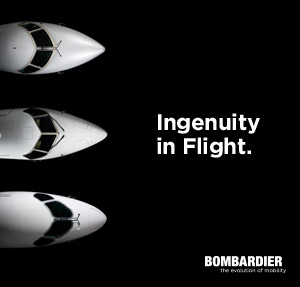KAMAN HELICOPTERS SUPPORTS K-MAX PROGRAM WHILE EXPANDING MANUFACTURING AND ROTOR BLADE WORK
February 9, 2012
BLOOMFIELD, CT, February 08, 2012 – The Kaman Helicopters Division of Kaman Aerospace Corporation, a subsidiary of Kaman Corporation (NASDAQ-GS: KAMN), continues to develop new chapters in its storied history with the unmanned K-MAX®; successes and opportunities in subcontract manufacturing; and rotor blade development and production.
Kaman will showcase its products and services in Booth 5222, Hall C, at the Helicopter Association International Heli-Expo 2012 at the Dallas Convention Center in Dallas, Texas, Feb. 12-14. Company executives and technical experts will be available for discussions with visitors throughout the event during exhibit hours.
K-MAX®
Two unmanned K-MAX aircraft, with three ground control stations, are currently performing cargo resupply missions for the USMC in Afghanistan. Kaman and teammate, Lockheed Martin have developed plans to produce additional K-MAX aircraft for the U.S. military if called upon to do so. The K-MAX Unmanned Aerial Truck (UAT) is supporting the requirements of the U.S. Marine Corps Cargo Resupply Program. TIME Magazine named the K-MAX UAT one of its “50 Best Inventions” of 2011.
Salvatore S. Bordonaro, Kaman Helicopters Division president, noted, “Unmanned or optionally piloted technologies for military and civil missions are going to drive our industry and Kaman Helicopters’ growth for many years to come. The challenging environment in Afghanistan is the ideal opportunity to showcase the tremendous capabilities of our UAT,” Bordonaro added, “and gives testament to Charlie Kaman’s vision and innovative development of unmanned systems originating in the early 1950s. Today we are ensuring that our unmanned heritage influences the next generation of military rotorcraft.”
Commercial versions of the K-MAX began flying in the early 1990s and have accumulated more than 260,000 flight hours over the last 20 years. Mark Tattershall, Director of Marketing and Business Development for the Helicopters Division stated, “The commercial K-MAX is a perfect aircraft for missions from firefighting to offshore oil duties. Why put people in harm’s way when it’s not absolutely necessary for dull and dangerous operations.”
Manufacturing and Rotor Blade Focus
Rotorcraft component fabrication and subcontracting has become a major line of business for Kaman. Company capabilities include integration, composite and metallic bonding and final assembly. Backed by Kaman’s OEM infrastructure and expertise, Kaman is the only rotorcraft industry subcontractor that can replicate OEM capabilities such as design/analysis, development, test, large system integration and manufacturing as well as repairs, upgrades and modifications. Among Kaman’s specialized facilities are rotor blade whirl towers and environmental testing such as sand erosion and full flight test capabilities.
The Helicopters Division Blade Center of Excellence (BCE) and Subcontracting Product Group offer a full-service development and manufacturing capability that will enable Kaman to respond to vigorous future market growth.
Kaman is executing flight tests and initial production for the Special Operations Forces AH-6 “Little Bird” small composite rotor blades (SCRB). The company is also building helicopter blade assemblies for Bell helicopters and the MD 900 rotor system. In the future, it may offer the SCRB for the MD 500 and MD 600 commercial helicopter series. The innovative new small composite rotor blade in development will eliminate the need for troublesome metallic erosion strips by incorporating the Hontek erosion coating system. The SCRB is being presented for the first time at Heli-Expo.
Complementing rotor blade production is Kaman’s partnership with Hontek that has successfully introduced a three-layer, color-specific for easy visual inspection, sprayable erosion coating. Erosion control has extended the lifespan and reduced the life cycle costs of U.S. Army Black Hawk utility helicopter main rotor blades. Kaman is completing coatings for the rotor blades of all Black Hawk helicopters flying in harsh environments with significant airborne particulates, such as Middle East deserts. To date, Kaman has protected over 2,500 rotor blades. In addition, the U.S. Army, U.S. Navy and several international military customers are evaluating the coating for possible applications on other platforms. Kaman is the only certified facility authorized to apply the Hontek coating and is installing a robotic spray facility at its Bloomfield, Conn. site.
Seasprites Continue to Serve
Kaman markets and supports the SH-2 Seasprite and SH-2G(I) Super Seasprite multi-mission maritime helicopter. The latest versions remain in service with the navies of Egypt and Poland and the Royal New Zealand Air Force. “Beyond our unmanned opportunities, we see demand growing for small ship maritime helicopters that provide nations with a cost-effective capability,” Bordonaro explained. “This requirement is driven primarily by territorial disputes, anti-piracy operations, submarine concerns, and drug and other smuggling operations.” The SH-2G(I) clearly is ideal for these missions and could generate further modifications of available existing SH-2’s into state-of-the-art anti-surface (ASuW) and anti-submarine warfare (ASW) variants.
About Kaman
Kaman Helicopters is a division of Kaman Aerospace Corporation, a subsidiary of Kaman Corporation (NASDAQ-GS: KAMN). Founded in 1945 by aviation pioneer Charles H. Kaman, and headquartered in Bloomfield, Connecticut conducts business in the aerospace and industrial distribution markets. The company produces and/or markets widely used proprietary aircraft bearings and components; complex metallic and composite aerostructures for commercial, military and general aviation fixed and rotary wing aircraft; safing and arming solutions for missile and bomb systems for the U.S. and allied militaries; subcontract helicopter work; and support for the company’s SH-2G Super Seasprite maritime helicopters and K-MAX medium-to-heavy lift helicopters. The company is also a leading distributor of industrial parts, and operates nearly 200 customer service centers and five distribution centers across North America.
Chile tiene de todo, pero poco. Biocombustibles
February 1, 2012
Uno de los diarios más antiguos de Chile, comenta en estos días, la factibilidad de producir biocombustibles a partir de algas marinas, más el descubrimiento de una “bacteria” que produciría el milagro de transformar el azúcar de estas en productos químicos y combustibles, lo que incluye el keroseno de aviación.
Las algas marinas, recurso “muy abundante” en Chile según el periódico en cuestión, no requieren inversión en riego, es una de sus grandes ventajas, además, no requieren de grandes extensiones de superficie terrestre para su producción como es el caso del maíz y las oleoginosas en general. En fin, esta es una historia conocida en Chile y cuyo final también es conocido, vivido y sufrido por su gente.
Chile es un país no rico, pero si muy diverso en todo el ámbito de la palabra, pero cuando algo se “descubre” en dicho país, viene el “exterminio” y el “agotamiento”del recurso. Chile puede dar clases de ello, es de esperar, que este “descubrimiento” no termine por exterminar un recurso importante de la flora naútica de ese lindo país del fin del mundo.
<






